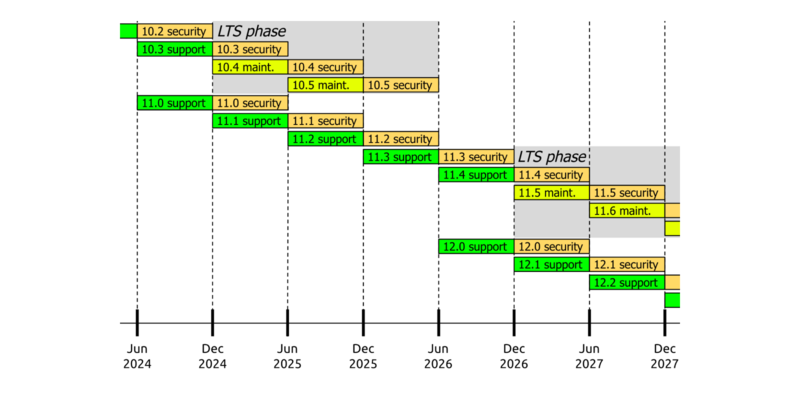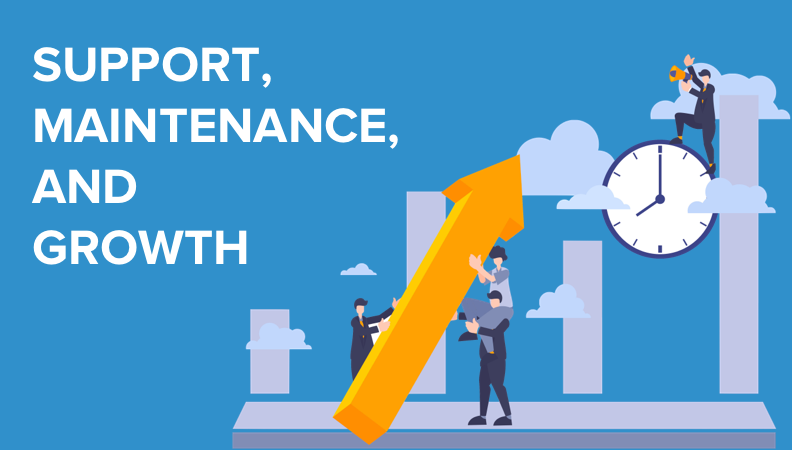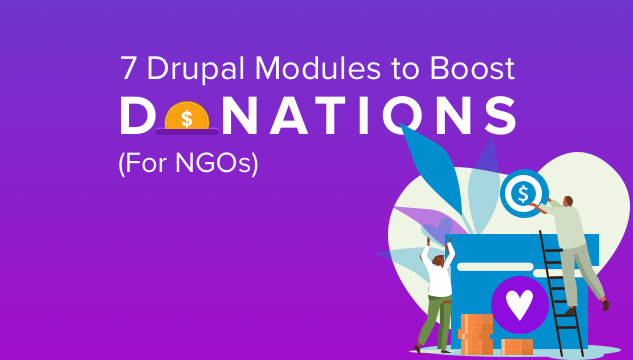- Solutions
- For Industry
- By Need
- Products
- VarbaseEnterprise CMS Distribution for Drupal
- Uber PublisherEnterprise Digital Media Platform Builder
- VardocDrupal Knowledge Base Platform
- Campaign StudioOpen Marketing Platform - by Acquia
- Open SocialSocial Business Platform - by Open Social
- Services
- Strategy
- Design
- Development
- Migration
- Support and MaintenanceSupport and Maintenance
- DevOps
- Digital Marketing

Datasheet

- Clients
- Ideas
- About
- Contact Us

Sailing Smoothly with Drupal 10: A Blueprint for Long-Term Success
Drupal 9 is scheduled to reach the end of its life cycle in November 2023, a seemingly challenging timeline considering Drupal 10 has yet to be released. However, the concise release cycle is driven by its dependency on Symfony 4, which is also scheduled to reach its End of Life in November 2023.
In addressing this situation, Drupal 10 aims to bring about improvements. The plan involves extending the time between major releases to two years, with a corresponding two-and-a-half-year lifespan for the Long-Term Support (LTS) release. This strategic approach seeks to provide a more sustainable and user-friendly experience for Drupal users.
Assuming this proposal is adopted and everything goes to plan, it will mean:
The New Major Drupal 10 Release Schedule
Starting from Drupal 10, a fresh major version of Drupal will be launched every two years during even-numbered years (such as 2022, 2024, and so on). Active support for each major version will span approximately two years, followed by maintenance support and security coverage for an additional two years. The support period extends until two subsequent major versions have been introduced.

This is an example. The exact schedule varies and will be published on the Drupal core release schedule.
Advantages To Adopting This Release Cadence
- It ensures a consistent release schedule for websites, eliminating uncertainty about when the next major release will occur, as experienced between Drupal 8 and Drupal 9.
- Websites built on initial versions of a major release will have a window of over three years before requiring a major update.
- Existing sites operating on a Long-Term Support (LTS) release (e.g., from Drupal 10.4 to Drupal 11.4) can seamlessly transition directly to the subsequent LTS release every two years. This eliminates the necessity to stay abreast of minor Drupal releases occurring every six months
How Can We Do It?
Achieving this timeline is contingent on the decision to bypass Symfony 5 when transitioning from Drupal 9 to Drupal 10 and instead move directly from Symfony 4 to Symfony 6. Symfony 6, released in November 2021 and slated for support until November 2027, will be the foundation for Drupal 10. The process involves initially launching an alpha version of Drupal 10 on Symfony 5.4, enabling automated deprecation analysis of contrib modules against the Symfony 5.4 codebase. Subsequently, the transition to Symfony 6 will occur.
Choosing Symfony 6 entails aligning with Symfony's minor versions until Symfony 6.4 LTS is introduced. While Drupal minor versions receive 12 months of support, Symfony minor versions are supported for only 9 months, creating an incongruence in their release cycles. To address this, an agreement has been established with Symfony, incorporating two Drupal core committers into Symfony's security team. These committers will possess the authority to backport security fixes for components utilized by Drupal beyond the typical End of Life (EOL) date for Symfony minor versions. This arrangement empowers Drupal to assume security support for specific components during the crucial three-month period necessary to bridge the gap between its own minor releases. Once Drupal transitions to Symfony's LTS release, continuous security support will be ensured until Drupal's EOL.
How To Use A Supported PHP Version For The Best Ongoing Drupal Support
Ongoing minor maintenance releases for Drupal 10 will consistently incorporate support for the latest PHP versions upon their release. The baseline PHP version supported by Drupal core aligns with the support cycle established by the PHP core team.
What Does It Mean For A Version Of PHP To Be Supported?
Drupal's minor versions benefit from a predetermined period of security coverage, typically lasting 12 months, as long as a supported PHP version is in use.
We aim to allow sites to continue receiving security updates even if they use an unsupported PHP version. However, it's important to note that Drupal's underlying components may cease supporting older PHP versions before the Drupal major version reaches its end of life. In such cases, the Drupal site won't be able to install security updates for that component, leading to a loss of guaranteed security coverage.
Site owners will be notified through warnings on their site status report if their PHP installation is deemed "too old," indicating that the site's PHP version may prompt a dependency to drop support.
If a dependency stops supporting a PHP version initially supported by the Drupal major version, an unscheduled minor release may be initiated to mandate the use of the new PHP and dependency versions. For instance, if Drupal 9.0.0 initially supported PHP 7.3, and a Drupal 9 dependency stops supporting PHP 7.3 before Drupal 9's end-of-life in November 2023, a new minor version may be introduced outside the regular schedule. This new version would increase the PHP version requirement to 7.4 and adjust the dependency's version requirement to the supported version.
For site owners aiming to leverage Drupal 10's long-term support phase, it is crucial to guarantee that their platforms consistently employ PHP versions that receive ongoing support from the PHP maintainers.
Varbase Dynamic Release Cycle and Supported Versions
Step into the Future with Varbase
Varbase embraces the cutting-edge Drupal 9/10 release cycle. Each iteration of Varbase, such as 10.0.x, aligns seamlessly with the major version of Drupal 10.0.x. This is how we join the journey of innovation and stay synchronized with the latest advancements of Drupal!
Elevate Your Experience with Varbase
Experience the epitome of compatibility as Varbase seamlessly aligns with the latest major version of Drupal 9/10, exemplified by versions like 9.0.x and 10.0.x. Be prepared for innovation, as Varbase swiftly adapts with the release of Drupal 10.1.0, marking the debut of Varbase 10.0.x while bidding farewell to the older supported version, such as 8.8.x.
Embark on a journey of smooth transitions.
As Varbase ensures seamless upgrade paths for a hassle-free move between versions. Stay ahead with Varbase and embrace the future of web development!
- #DrupalCares
- #drupal
- drupal9
- drupal10



